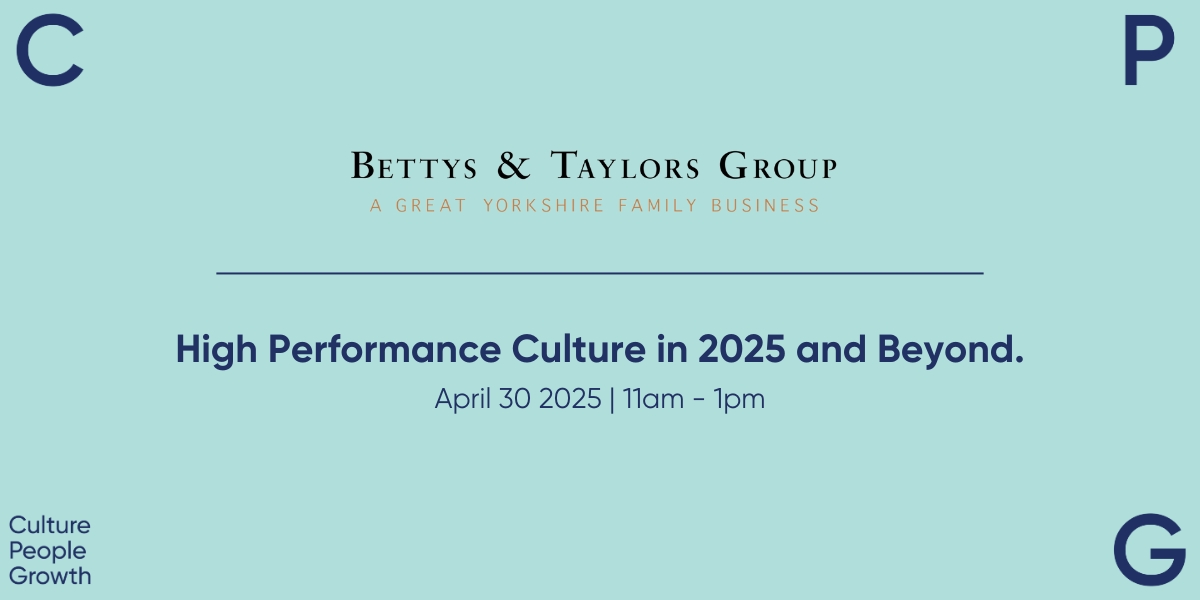
Embrace The Multi-Generational Workforce
Is it just me or, does it seem that you can’t get through 24 hours these days without someone, somewhere talking in terms of “generations” and moreover, each generation’s respective negative stereotypes?
The Greatest Generation are made of the steeliest stuff, have a stiff upper lip and “get on with things”; the Baby Boomers are driving us all into despair because they won’t relinquish ownership of the country’s housing stock; Gen X are cynical, independent and were the first “latchkey kids” so they think that they know best; Millennials are awful- lazy, narcissistic, delusional and entitled; Gen Z will someday save the planet through TikTok and Gen’s A and B will probably never understand or have the opportunity to communicate, feel and love in the analogue world which simply won’t exist to them.
If you believe what you hear and read, you will be of the view that inter-generational relationships and understanding are simply not possible: that it is the case that we are all bound by the confines of our own generations and those inherent character traits that were thrust upon us by the year of our birth.
Whilst I do not personally, in any way subscribe to the notion that intergenerational relationships are “impossible”, I do believe that they can be exceedingly difficult. This is not because people from outside my own generation are awful humans, it is because every single one of us is a product of our own experiences and because we live in a society where (in my view) tolerance for others sadly seems to come at a bit of a premium. Who each of us are today, is the product of who each of us have been and we have been, in a significant part, what our society has told us to be, allowed us to be and given us the opportunity to experience.
I believe that none of us have had the “right” experience and none of us have had the “wrong” experience, we have all just had “our” societal experience which is one that we will generally share with people who were born at a similar time.
Digital society and the workplace as a microcosm of that society
We live in a fast-paced society, even more so these days and the pace at which our world is digitalising is disrupting and shaping the fabric of our lives and experiences is so fast that we have not even evolved as a species to manage it. (Just to make clear I am a solicitor, not an anthropologist- which would arguably be more exciting, but I am read on this subject and I am more than convinced by the research on this evolutionary point). Whatever your views, you have to at least accept that society shifts, and that values and ethics change and have changed over time.
Our lives and our society outside of work are, ultimately reflected inside work. Work is just a microcosm of life and so, as in outside society we are seeing the highest number of different generations existing simultaneously, we are also seeing this reflected in the workplace. For the first time we are seeing 5 or 6 generations in the workplace at the same time and don’t get me started on micro-generations, which apparently do exist in the younger generations as the rapidity of digitalisation causes significant societal developments at the rate of half a standard generation.
How do any of us keep up? Can we? Is it better to bring the shutters down and view our fellow humans and colleagues from outside of our generation with suspicion and contempt?
Gen Z workers
I write glibly but this is a relevant issue that employers cannot afford to ignore because unless you are able to find a way to accommodate the very different realities of multiple different generations, your business will not thrive as we move past 2025 and into an increasingly digitalised society.
Gen Z workers are paving the way for the next generation of workers by continuing to prioritise a healthy work-life balance. They were set to outnumber Baby Boomers in the workforce for the first time last year, shifting workplace dynamics and transforming the today’s workplace culture however, due to a multitude of factors (increasing cost of living; better life expectancy; self-fulfilment, to reference just three) it has been estimated that at least 13% of retirees plan to re-enter the job market in 2025. As retirees return, more younger employees are simultaneously entering into the new TikTok phenomenon of “micro-retirement.” But what do these age reversal trends mean? What is a “micro-retirement,” and what can employers do to accommodate to these opposing trends?
Micro-Retirement’ Trend Vs. Traditional Retirement
The younger generations have begun to normalise a heavier focus on well-being and a good work-life balance. They expect to live well into their 80s and 90s and understand that retirement at 55 or 60 will not be the norm for them. Instead therefore, of waiting until retirement to travel the world, Gen Z are taking time between jobs to have time out and to have lifetime experiences. Younger people are arguably more comfortable being open about wanting to prioritise their mental health, personal fulfilment and meaningful experiences and do not necessarily expect to have a “job-for-life” and indeed, whether these still exist is another, separate question. Although it can be daunting to leave a career behind, the progression of technology in the past ten years means that searching for jobs is now far more streamlined. You can apply for a job from your smartphone whilst watching Netflix or, from a beach bar on the other side of the world. This streamlining and access to a global market has really reduced the fear of losing career momentum after a break and for those who want to travel while keeping their career, the rise in remote working since the pandemic means that individuals can still maintain part-time or project-based work if they so desire. The world of work is different.
The Great Retiree Return
While Gen Z are taking micro-retirements, Baby Boomers are leaving retirement and returning to the workforce. Beyond financial stability, returning to work offers retirees social benefits, a renewed sense of purpose and opportunities to slow down without throwing in the towel.
This absolutely is not a bad thing however and those employers who embrace generational diversity in the workplace will surely see enhanced collaboration and innovation within teams with younger employees gaining access to the wisdom and experience of older colleagues helping to shrink the risk of knowledge gaps in the workforce.
Retirees often represent a seasoned talent pool, especially in less digital trades and professions. They often require less onboarding and can bring skills that can fill critical gaps. For industries experiencing labour shortages this is incredibly advantageous. Returning retirees also bring incredible institutional knowledge, expertise and mentorship capabilities, which will help bridge skill gaps and contribute to leadership roles, training junior employees and offering insight and consultative knowledge on strategic projects.
Change is needed. Embrace it.
As companies are forced to navigate these generational transitions, it is going to be crucial for employers to reshape traditional work practices and create environments where the needs of all generations can thrive. There is no “one sized fits all” approach but taking the time to understand the priorities and traits of each section of your workforce will be a crucial step in allowing you to grow through your people. In terms of the older generations, to accommodate the unique needs of retirees, employers could consider offering flexible roles, such as part-time or project-based positions. Addressing barriers such as ageism, proper job training and technology upskilling for older workers not only fosters inclusivity but also enhances the effectiveness of retirees in their roles. Employers may also want to offer more tailored benefits, such as additional healthcare options or phased retirement plans to further entice or award the retirees. The same goes for the younger generations and the same exercise should be carried out here looking at the needs and priorities across all of the working generations.
Perhaps the ultimate solution is for employers to focus on both ends of the age spectrum. This would require making sure all generations feel safe, respected and protected from ageism and discrimination. That way employees get to choose their career trajectory based on their current life experiences and values, which would honour those who want to return to the workforce and those who prefer to take early micro-retirement.
Written by a lazy, narcissistic, delusional and oh so entitled, Millennial.

Charlotte Geesin
Chief Legal Officer and Millennial, Howarths
How can you embrace (and manage) a multi-generational workforce?
We’ll be covering this very subject, and much more in our upcoming Culture. People. Growth. event on April 30th, at Bettys & Taylors, Harrogate.
Get real insight into the risks, the benefits and the best way to thrive and grow with a multi-generational workforce.



